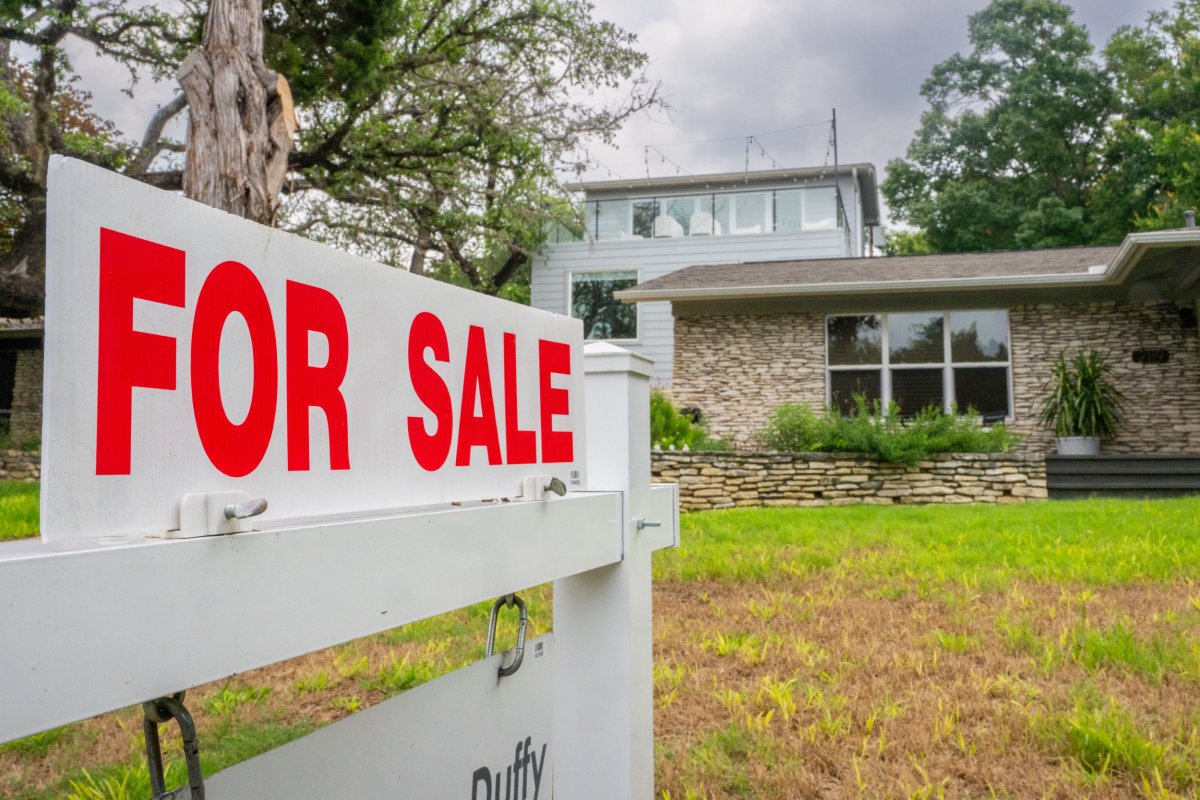
Austin’s housing market is showing more signs of stalling as million-dollar home sales increase across the state of Texas.
Whereas other cities in Texas are increasing their million-dollar home sales, Austin’s million-dollar home sales have stayed relatively flat compared to previous years, according to a new report from Texas Realtors.
Why It Matters
While Austin experienced a housing boom during and right after the coronavirus pandemic, the city has seen a significant drop in real estate demand.
Austin’s rent prices went up 25.5 percent from 2019 to 2023, and home prices accelerated by 55.6 percent, per SmartAsset data.
But according to Apartment List, Austin’s rents declined by 7 percent from 2023 to 2024, and home prices dropped by 11 percent since 2022, the Freddie Mac House Price Index said.

Brandon Bell/Getty Images
What To Know
The Texas Realtors report analyzed single-family home sales for properties priced $1 million or higher from November 2023 through October 2024 across the state of Texas.
While the number of Texas homes overall that sold for $1 million or more increased 10 percent from November 2023 to October 2024 compared to the prior year, Austin’s share of million-dollar homes staggered below its past growth.
Altogether, there were 12,888 sales representing $21.4 billion in the state, which is the second highest ever recorded behind the period from November 2021 to October 2022.
The number of $1 million plus homes comprised 4 percent of all sales.
The Austin Round Rock metropolitan area made up only 19 percent of all $1 million or more home sales in the state, while Dallas took up a sizable 38 percent.
Austin ultimately only saw five more million dollar home sales this year, while Dallas experienced a boost of 14 percent and Houston grew by 10 percent.
What People Are Saying
Kevin Thompson, a finance expert and founder and CEO of Fort Worth-based 9i Capital Group, told Newsweek: “As more people migrate from higher-cost states like California and other West Coast areas to Texas, it’s becoming clear that they have greater purchasing power after selling their previous homes. This has led to a rise in luxury home sales, particularly in North Texas, where major companies like Toyota, Caterpillar, and McKesson have relocated.”
Alex Beene, a financial literacy instructor for the University of Tennessee at Martin, told Newsweek: “In the years before and during the pandemic, Austin was in many ways the ‘shining city on a hill’ when it came to an example of a city with incredible growth in virtually every sector. With that meteoric rise, though, can come a steep decline. Home prices shot up dramatically, and while they were still technically cheaper than locations like New York City and Los Angeles, they were far from the major bargain they once were and higher than fellow Texas locations like Dallas and Houston. It’s not that Austin as a market is no longer attractive to wealthy buyers, but rather that it’s cooling from incredible highs and no longer the hot spot for many Americans looking to relocate.”
Hannah Jones, Senior Research Analyst with Realtor.com, told Newsweek: “Austin is the most expensive large metro in Texas and accounts for an outsized share of the state’s million-dollar home sales. Despite challenging housing conditions and falling home sales, million-dollar home sales remained steady in Austin in 2024, an impressive feat as home sales fell overall. Austin continues to see the highest million-dollar home share of sales, but the other three metros may close the gap as buyers look to get more for their money.”
What Happens Next
North and Central Texas continue to experience an increased demand for high-end homes due to their lower taxes and relatively affordable cost of living, Thompson said.
“Meanwhile, Austin’s market has remained steady due to an oversupply of housing built during the post-pandemic boom, which has tempered growth in sales,” Thompson said.
Moving forward, the Texas housing market is likely to remain strong, but rising interest rates have led to price declines in several regions, Thompson said.
“Looking ahead to 2025, Austin’s real estate market will largely depend on the performance of its booming tech sector,” Thompson said. “If the industry remains robust, demand could stabilize. However, if job growth slows, the market may face further corrections.”




